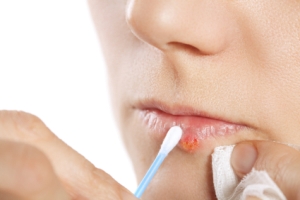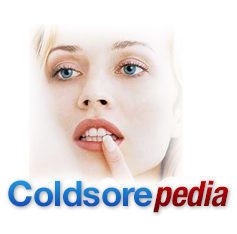 For those suffering from recurring eruptions of herpes simplex type 1 –
For those suffering from recurring eruptions of herpes simplex type 1 –
From that start, it progresses to swelling and reddening of the skin. Small blisters form in clusters. The blisters burst, leaving open sores that weep clear fluid. The sores crust over, and the crusts shed and reform, until the sores have healed and the virus returns to a dormant phase.
Ideally, it would be great to prevent that dormant phase from ever giving rise to another outbreak. Unfortunately, there is no known way to achieve that end, but there are ways to shorten the duration of an outbreak and hasten the return to dormancy.
Medications
A number of medications (generally antivirals) are available for treatment of a cold sore outbreak.
Docosanol is an antiviral agent whose exact mechanism is uncertain, but that has been proven effective in clinical trials. It is found in the over-
Acyclovir is another antiviral agent that is of some effectiveness in treating cold sores and other forms of herpes. It is found in the medication Valtrex, available in oral form only. Its effectiveness is comparable to that of docosanol, i.e. it shortens the duration of the outbreak by a day or two. Side effects may differ between acyclovir and docosanol, and on medication may work better for some patients than the other.
Other medications claim to be able to treat cold sores but do not at this time have FDA approval. These include Zicam, a formulation based on zinc; Releev, a topical ointment containing benzalkonium chloride, and others. None of these medications have been demonstrated to have any significant effect on the duration of cold sores. Benzalkonium chloride does have antibacterial and some limited antiviral properties
and is commonly used as an antiseptic.
Home Remedies
Home remedies and alternative remedies for cold sores abound. These include, without limitation, the following:
- Lysine (in food, supplements, and ointments)
- Lemon balm (topical application, may have antiviral properties)
- Reishi (mushroom used in traditional Asian medicine, taken daily to strengthen immunity)
- Astralagus (an herb used similarly to, and sometimes along with, reishi)
- Resveratrol (topical antibiotic made from a substance found in red grapes)
- Peppermint oil (topical –
– careful with this one, might be toxic) - Propolis (found in small quantities in honey)
- Ice (applied wrapped in cloth to the sore)
- Acidophilus (taken orally in capsule form)
- Lemon (applied at initial outbreak, before the open sore phase)
- Milk (applied topically, soaked into a cotton ball or other absorbent cloth)
Research Towards A Cure
Although there is as yet no cure for cold sores, research is ongoing into an interesting and prominent direction. A medical researcher at Duke University has explored a counter-
The idea behind this is that while the virus is dormant it is protected and impossible to eradicate. As long as it’s in its active phase, however, it can be killed with antiviral drugs such as acyclovir. Acyclovir today operates to shorten the duration of the outbreak, but the virus simply
returns to its dormant state a little sooner. Acyclovir is not a cure. The idea behind inhibiting the return to dormancy, however, is that if this is prevented then acyclovir will become a genuine cure.
The mechanism by which the dormant stage is triggered has been found, but this research is still quite a long way from producing a true
cure for cold sores. Until then, sufferers must rely on treatments that alleviate symptoms and shorten the outbreak.
